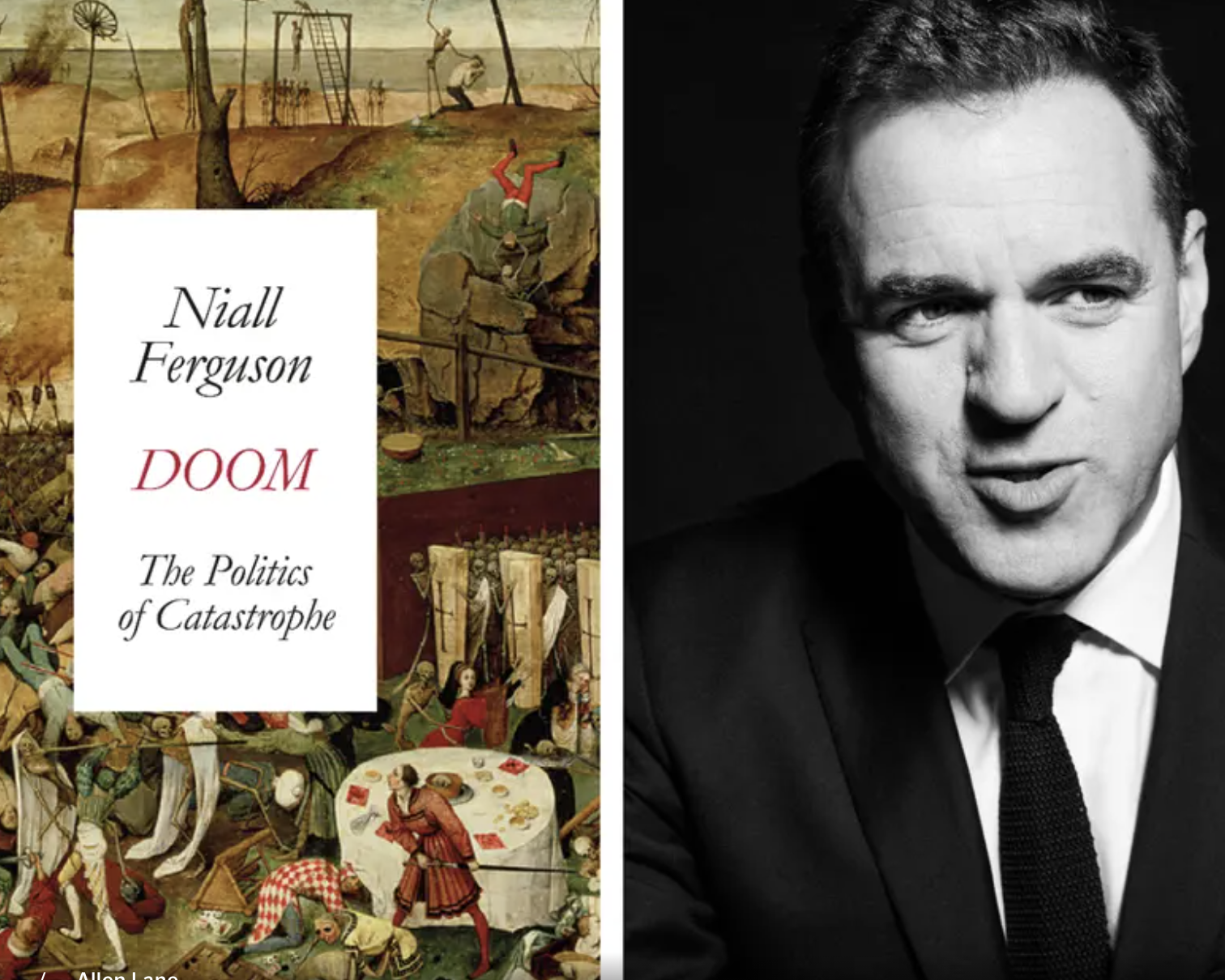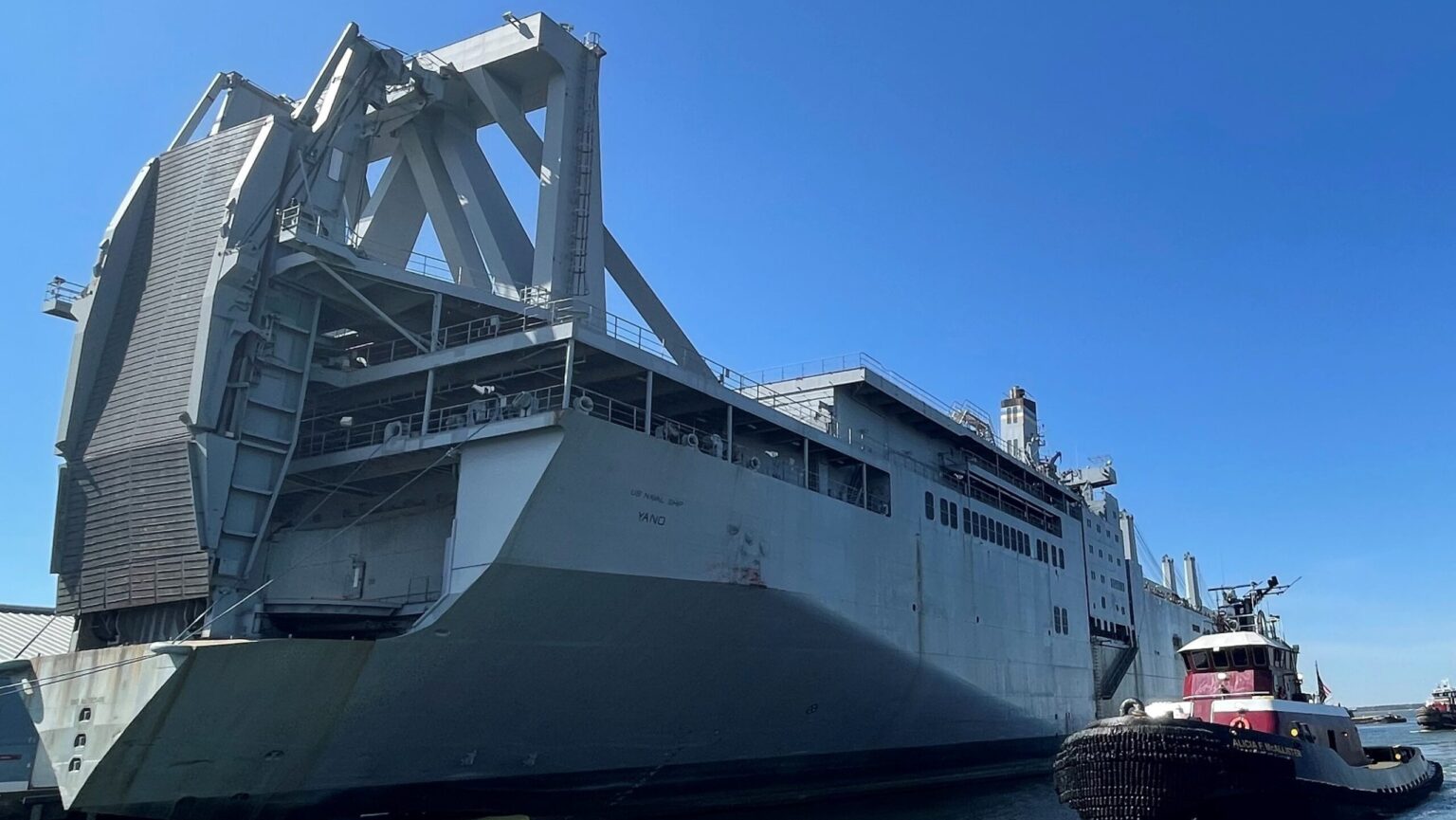
Doom: The Politics of Catastrophe by Niall Ferguson review
(Evening Standard) – From plagues and volcanic eruptions to the current Covid pandemic, mankind has always been faced with catastrophes.
Thought Leader: Niall Ferguson

In any conflict with China, America’s most critical vulnerability wouldn’t be its destroyers, stealth bombers, or submarines. It would be the unglamorous network of ships, aircraft, and supply depots that keep them fighting. Logistics — the bridge between the national economy and combat forces — is the weakest link in the American deterrence system.
After decades of neglect, this bridge is crumbling, and Beijing knows it. Deterring China requires the US build up not only front-line combat forces, but also its logistical infrastructure
The US logistics enterprise is optimized for peacetime efficiency, a euphemism for cost-cutting. American maritime logistics system, essential for sustaining a fight across the vast Pacific, is particularly brittle and unprepared for a protracted conflict. During World War II, America commanded over 6,000 merchant ships to supply allied forces. Today, fewer than 200 US-flagged oceangoing commercial vessels remain.
The decline is systemic. The Military Sealift Command, the Navy’s logistics backbone, faces such severe personnel shortages that it is decommissioning ships it cannot crew. The Ready Reserve Force, the US surge fleet for emergencies, is a floating museum; the average ship is over 40 years old, with many struggling to meet activation deadlines due to poor maintenance. This hollowed-out force would likely become a top target in the opening hours of a war.
This logistical deficit directly undermines deterrence. While the best public wargames suggest the US would win a war against China today, Washington’s advantage is shrinking. As INDOPACOM commander Adm. Samuel Paparo notes, we are operating on “narrowing margins.” China’s leaders may believe they could triumph in a long war by simply wearing out US supply lines. For example, Beijing could mobilize its forces and keep them at a high state of readiness, forcing the US into a costly, draining counter-mobilization that exhausts our logistics before a shot is even fired. If Beijing believes we lack the endurance for a protracted fight, it may be tempted to start one, assuming our will — and that of our vulnerable allies — will crumble over time.
History offers a stark warning. President Franklin D. Roosevelt’s 1940 decision to move the Pacific Fleet to Pearl Harbor was meant to deter Japan. But the forward-deployed fleet was not logistically supported for sustained combat. This vulnerability didn’t deter Japan; it invited attack. Today, we risk repeating this mistake on a grander scale, deploying forces without a credible plan to sustain them under fire.
While the challenge is immense, it is not insurmountable. Averting a logistical catastrophe requires urgent, targeted action in three areas.
Partner with allies to build a resilient, shared logistics network. Japan and South Korea have world-class shipyards and robust merchant marines. They can help expand our sealift and tanker capacity through co-investment and commercial contracts—while sharing some of the cost. The Trump administration is already wisely exploring these options. Additionally, allies like Australia, the Philippines, and Palau can host more forward-positioned and hardened facilities for repair, rearmament, and resupply. Washington should also pressure key allies to massively expand their own strategic stockpiles of food, fuel, munitions, critical minerals, and essential components. Deterrence in the Pacific is a team sport.
Refocus domestic investment on our logistics ecosystem. The Pacific Deterrence Initiative (PDI), a congressional fund created to bolster our posture in Asia, has become a grab bag for unrelated priorities. It must be refocused laser-like on logistics. Congress should give US Indo-Pacific Command more direct control over PDI funds to build the hardened, distributed network needed to operate within range of China’s missiles.
Start revitalizing our national maritime enterprise. This is a generational project, which is why allied cooperation is essential for the foreseeable future — but the work must start now, in earnest. Congress must fund the modernization of the Ready Reserve Force’s aging fleet, increase capacity at the US Merchant Marine Academy to train a new generation of mariners, and reform pay scales to retain essential workers. While Congress is at it, this would be an optimal time to recapitalize the submarine industrial base. The stronger the US deterrent force undersea, the less important surface logistics will become.
The costs of rebuilding our logistics capacity are substantial, but they pale in comparison to the cost of failure. By using the next annual defense budget to invest in resilient regional logistics, Washington can send an unmistakable, bipartisan signal to Beijing that China has no quick and easy pathway to dominate its neighborhood by force.
The essential bridge between economic might and military effectiveness must be restored as a foundational pillar of our national strategy. It is the delivery system for the arsenal of democracy.
Eyck Freymann is a Hoover Fellow at the Hoover Institution, Stanford University.
Harry Halem is senior fellow at Yorktown Institute.
They are the authors of The Arsenal of Democracy: Technology, Industry, and Deterrence in an Age of Hard Choices, available through Hoover Institution Press, November 1.
Dr. Eyck Freymann is a keynote speaker who delivers unparalleled perspective on the evolving U.S.-China relationship. Drawing on deep expertise in CCP strategy, global economics, and national security, he translates complex geopolitical trends into clear, practical takeaways for business leaders, investors, and policymakers. Whether advising on high-stakes decisions or addressing audiences worldwide, Dr. Freymann provides the foresight and clarity needed to navigate today’s shifting global order. Contact WWSG to bring Eyck to your next speaking engagement.
Doom: The Politics of Catastrophe by Niall Ferguson review
(Evening Standard) – From plagues and volcanic eruptions to the current Covid pandemic, mankind has always been faced with catastrophes.
Thought Leader: Niall Ferguson
One reason so many are quitting: We want control over our lives again
The pandemic, and the challenges of balancing life and work during it, have stripped us of agency. Resigning is one way of regaining a sense…
Thought Leader: Amy Cuddy
Scott Gottlieb: How well can AI chatbots mimic doctors in a treatment setting?
This is an Op-ed by WWSG exclusive thought leader, Dr. Scott Gottlieb. Many consumers and medical providers are turning to chatbots, powered by large language…
Thought Leader: Scott Gottlieb

